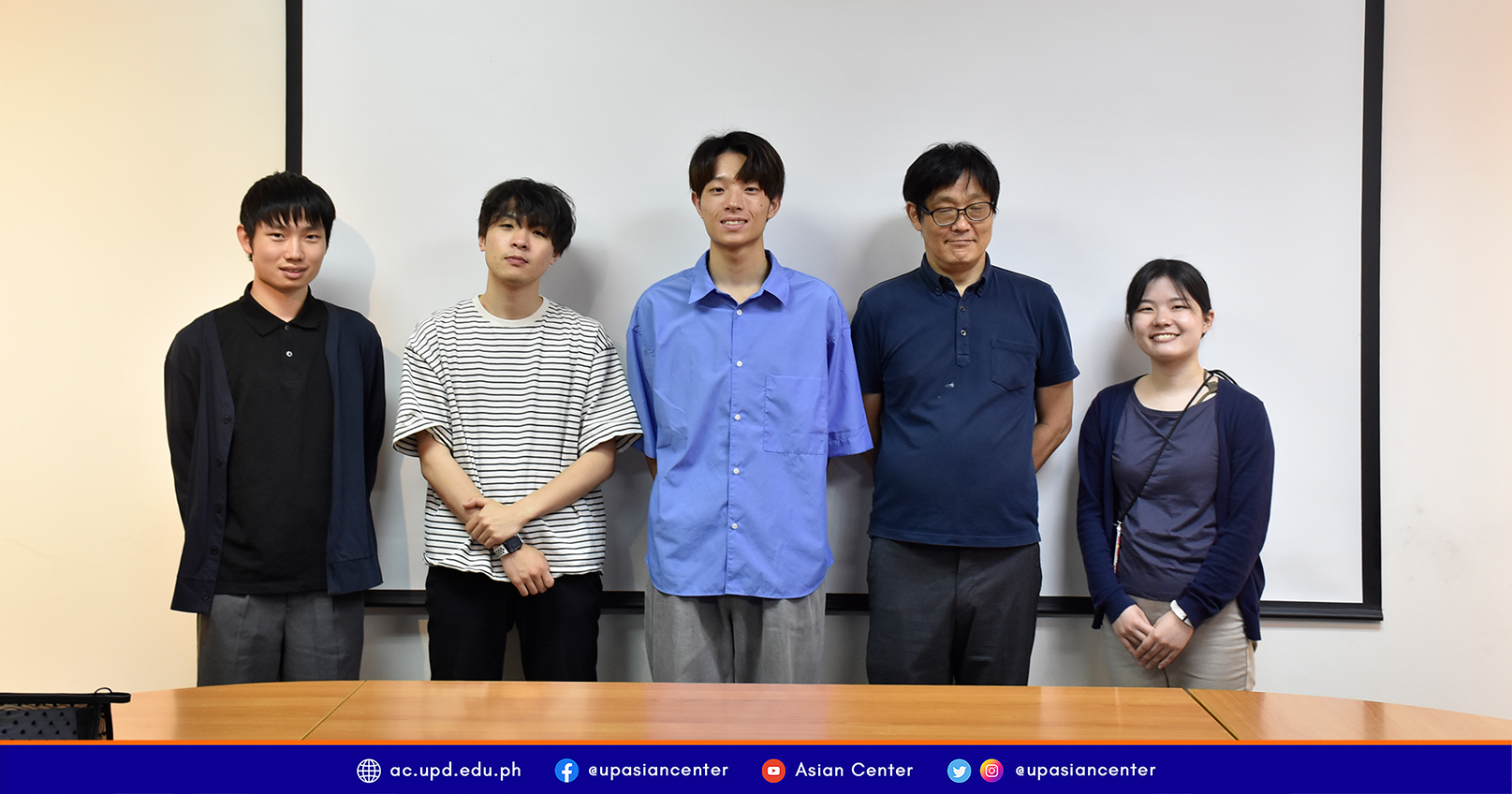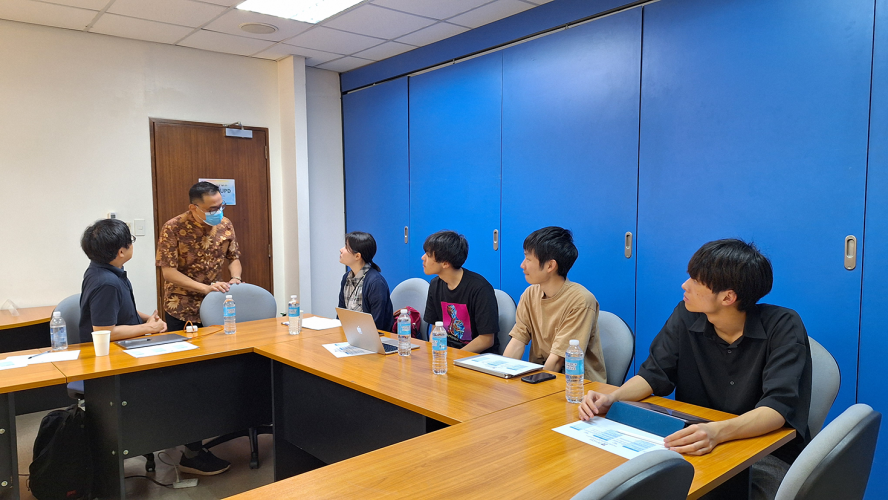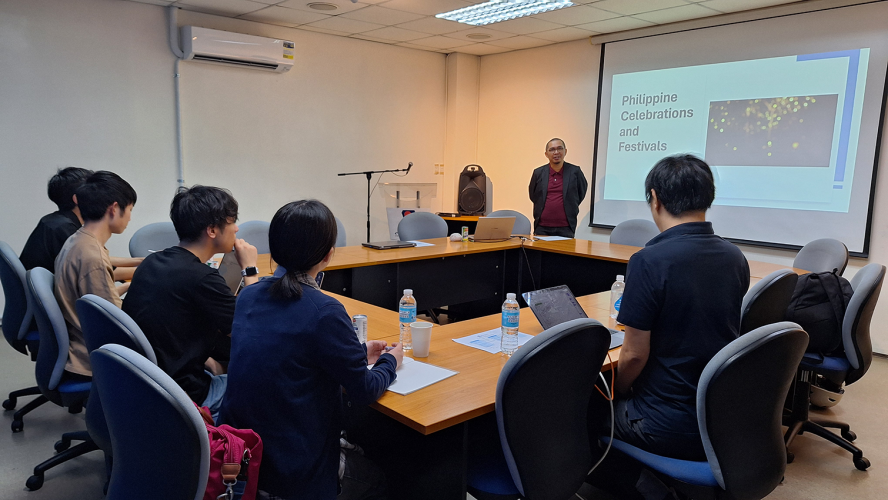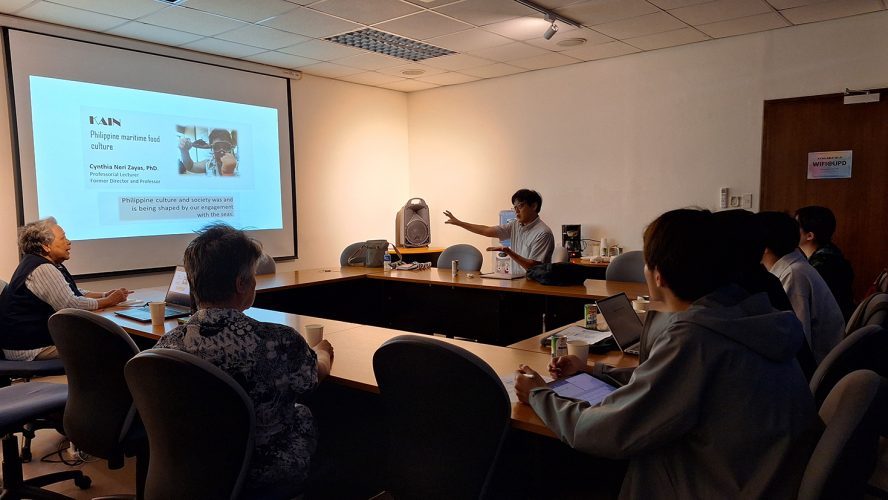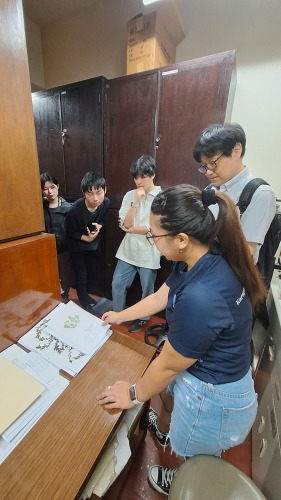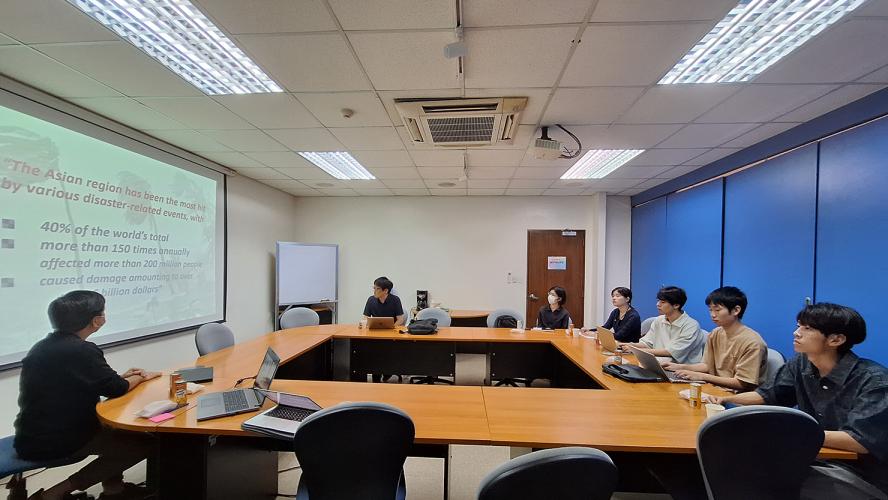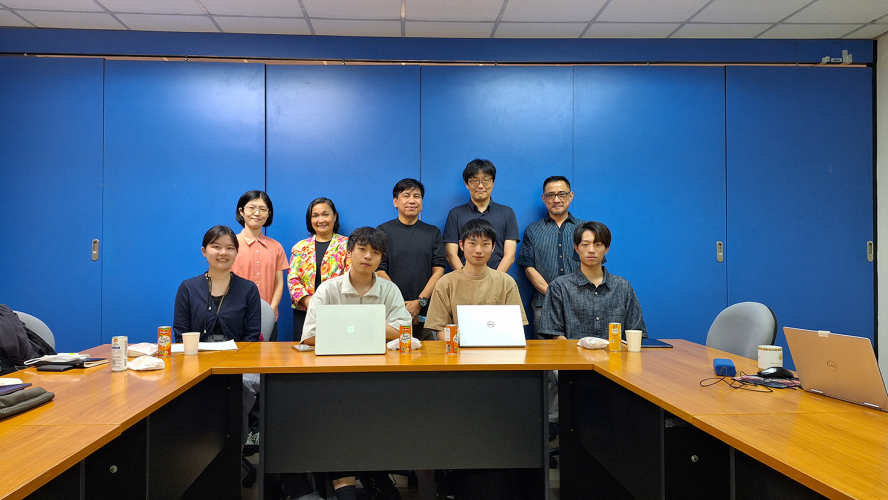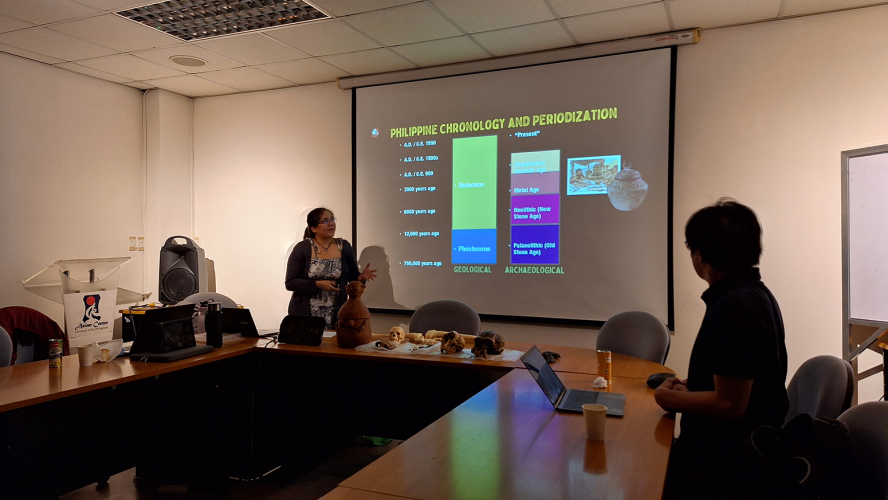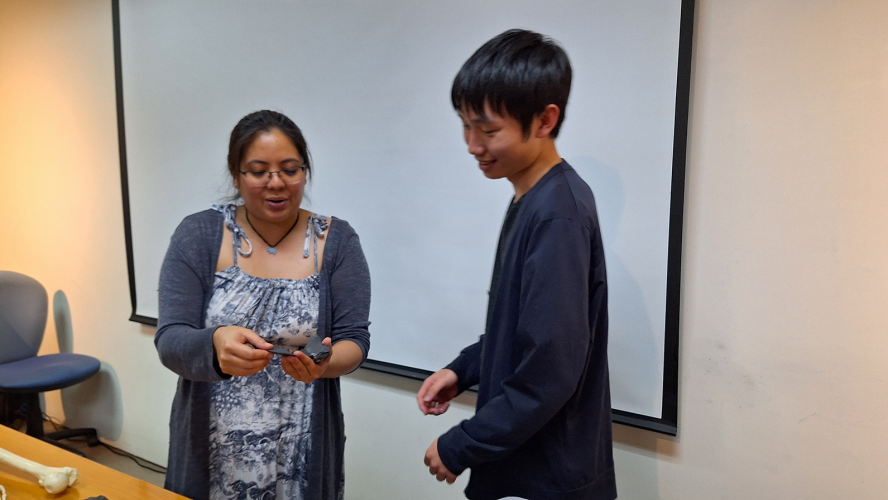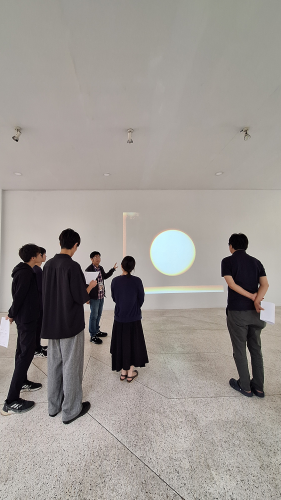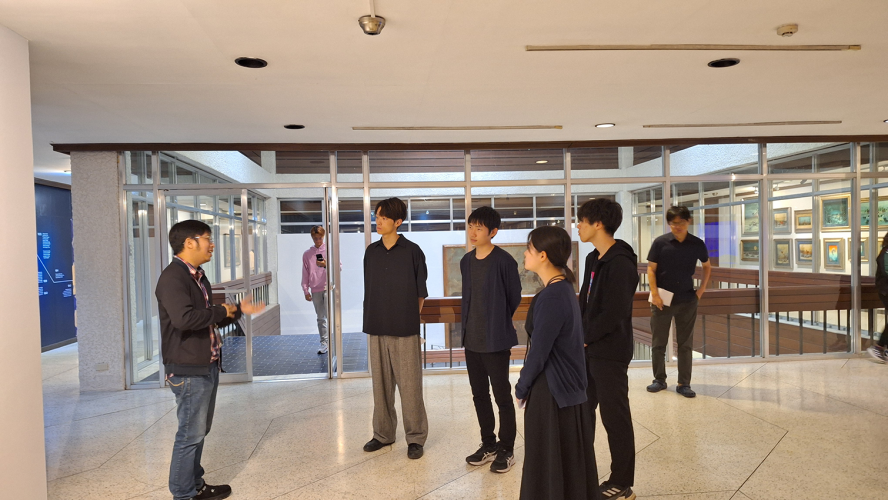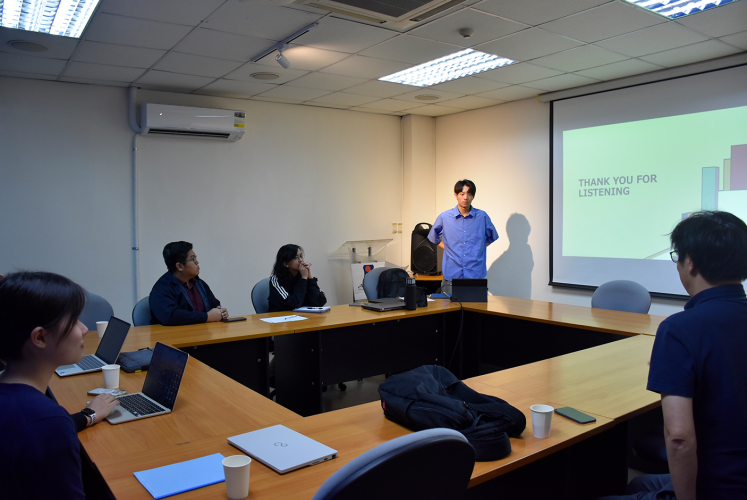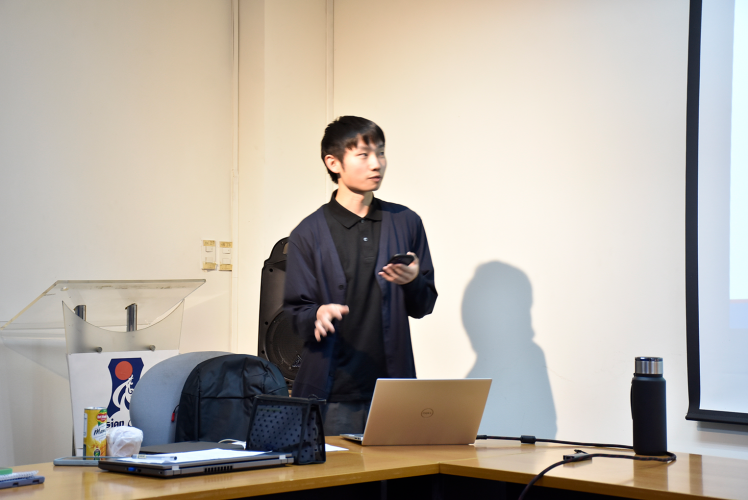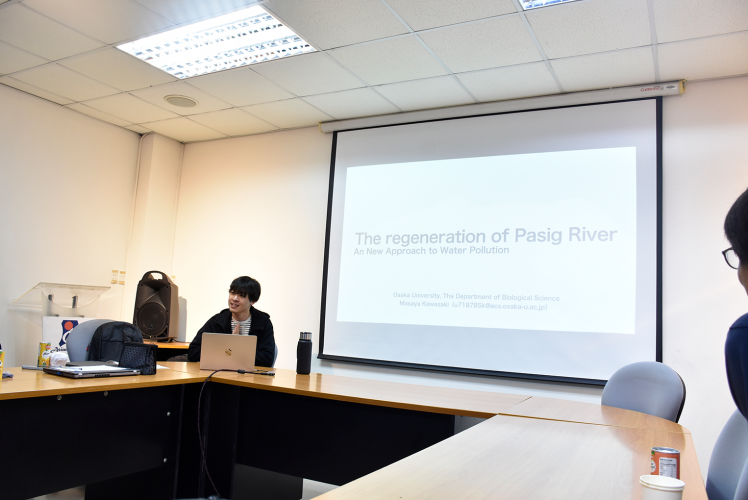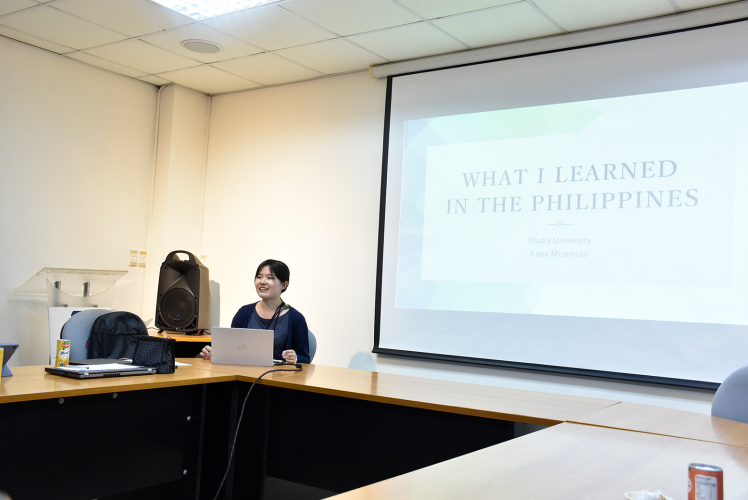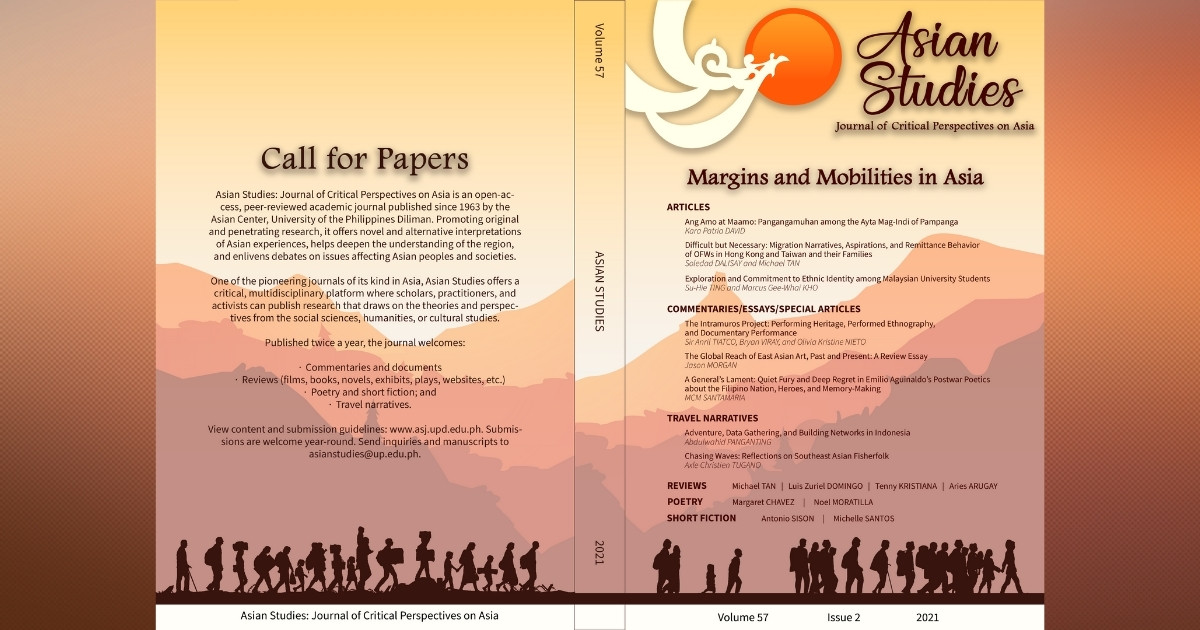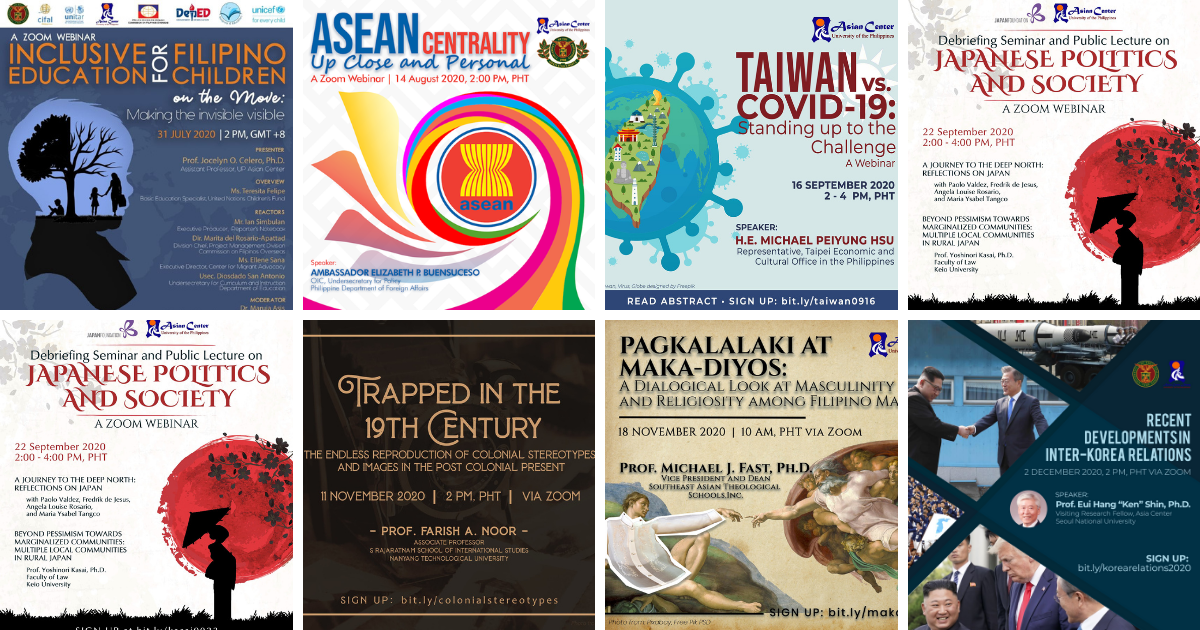The UP Asian Center successfully hosted of four (4) undergraduate students from Osaka University under the Osaka University International Certificate Program (OUICP-S). Held last 14 to 20 March 2024, this activity marks a significant milestone in the UP Asian Center’s Japan Studies program.
The program commenced in UP Los Baños through a three-day program which involved visits to rice research facilities. In the second leg, hosted in UP Diliman through the UP Asian Center, participants engaged in a weeklong program that deepened their understanding of Philippine culture and society.
Distinguished professors and scholars from the University of the Philippines Diliman delivered insightful lectures on a wide range of topics, including Philippine culture, maritime traditions, disaster resilience, theater, and gender studies. Each session was designed to provoke thoughtful discussions and broaden the participants' perspectives on Philippine culture, especially as they come from a background of natural sciences and computer science. The sessions provided an opportunity for students to enrich their knowledge about the Philippines and enabled them to enhance their English-speaking skills by participating in the discussions.
LECTURE SERIES
Philippine Festivals and Celebrations
Noel Christian A. Moratilla, Ph.D.
Associate Professor, UP Asian Center
Philippine Maritime Food Culture
Cynthia N. Zayas, Ph.D.
Professorial Lecturer, Center for International Studies
Disaster resilience in Asian regional cooperation
Alexander Michael G. Palma, Ph.D.
Assistant Professor, UP Asian Center
Philippine Theater
Amparo Adelina C. Umali III, Ph.D.
Professor, Center for International Studies
Gender Equality Among Filipinos
Maria Dulce F. Natividad, Ph.D.
Associate Professor, UP Asian Center
Key Archaeological Discoveries in the Philippines
Andrea Dominique Cosalan
Senior Lecturer & University Research Associate, School of Archaeology
LECTURE SERIES
Philippine Festivals and Celebrations
Noel Christian A. Moratilla, Ph.D.
Associate Professor, UP Asian Center
Philippine Maritime Food Culture
Cynthia N. Zayas, Ph.D.
Professorial Lecturer, Center for International Studies
Disaster resilience in Asian regional cooperation
Alexander Michael G. Palma, Ph.D.
Assistant Professor, UP Asian Center
Philippine Theater
Amparo Adelina C. Umali III, Ph.D.
Professor, Center for International Studies
Gender Equality Among Filipinos
Maria Dulce F. Natividad, Ph.D.
Associate Professor, UP Asian Center
Key Archaeological Discoveries in the Philippines
Andrea Dominique Cosalan
Senior Lecturer & University Research Associate, School of Archaeology
The students also explored the UP Diliman campus and its culture and arts institutions such as the Asian Center Museum, the Vargas Museum, the UP Press, and the UP Fine Arts Gallery. They also familiarized themselves with the research and academic resources available at UP Diliman such as the libraries, theaters, and specialized research facilities like the G.T. Velasquez Phycological Herbarium of the UP Marine Science Institute. The participants also visited Quezon City landmarks like the Bantayog ng mga Bayani where they learned more about the Marcos dictatorship and the roster of martyrs and heroes during martial law.
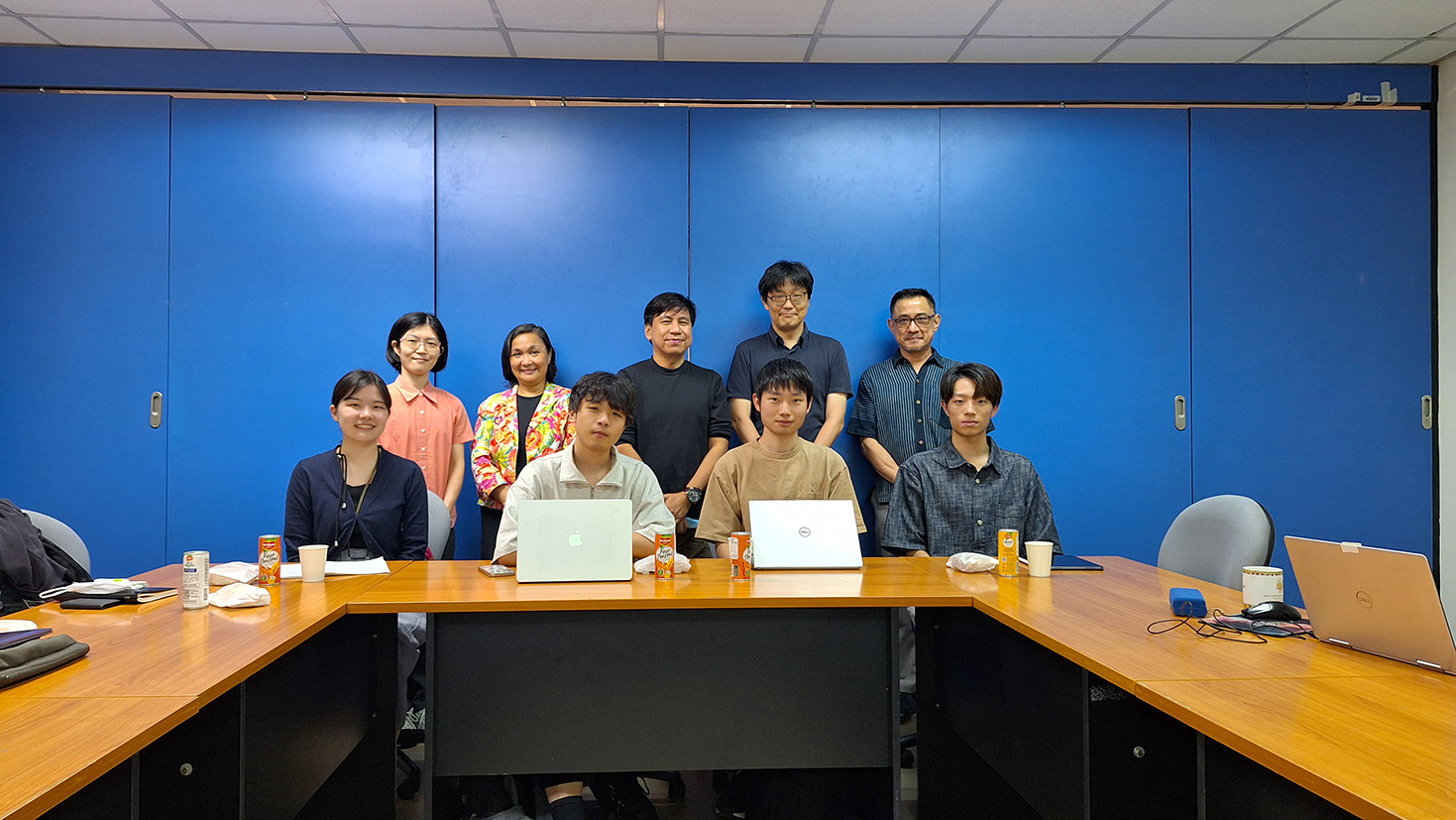 During their visit, the students had the opportunity to explore Barangay UP Campus, gaining significant understanding of the barangay system in the Philippines and the issues confronting the community, such as healthcare, education, livelihood, and child welfare. The Barangay Secretary provided a comprehensive overview of the barangay's organizational structure, which encompasses hundreds of personnel and volunteer workers. To further acquaint themselves with the facilities and services available within the barangay, the students toured key local offices including the Barangay Hall, Family and Community Healing Center, Barangay Council for the Protection of Children, public library, barangay health station, and the recently established dialysis center which offers free services to residents.
During their visit, the students had the opportunity to explore Barangay UP Campus, gaining significant understanding of the barangay system in the Philippines and the issues confronting the community, such as healthcare, education, livelihood, and child welfare. The Barangay Secretary provided a comprehensive overview of the barangay's organizational structure, which encompasses hundreds of personnel and volunteer workers. To further acquaint themselves with the facilities and services available within the barangay, the students toured key local offices including the Barangay Hall, Family and Community Healing Center, Barangay Council for the Protection of Children, public library, barangay health station, and the recently established dialysis center which offers free services to residents.
The program culminated in the form of a student forum on the UN Sustainable Development Goals (SDGs) where participants presented their understanding of specific social issues they encountered throughout the program and proposed innovative solutions. Addressing the goal of sustainable cities and communities, Ueno Koichiro pitched the use of computer programs and sensors to minimize traffic jams in Metro Manila. Yano Atsuhiro tackled quality education by proposing the use of generative AI as a tool to address limitations in secondary and tertiary education. Meanwhile, Kawasaki Masaya introduced the Japanese Hi-beads technology as a means to reduce river pollution and emphasized the role of local communities in achieving a healthy ecosystem. Finally, Miyamoto Kana focused on the potentials of newly developed low-glycemic index rice to curb obesity in the Philippines.
STUDENT FORUM ON SUSTAINABLE DEVELOPMENT GOALS
As part of Osaka University ASEAN Campus Concept, the Osaka University International Certificate Program (OUICP-S) aims to develop high-level global talent that will lead the knowledge co-creation society in the ASEAN region and achieve its high-quality growth. As a requirement for the completion of the program, participants presented their recommended solutions to address a specific sustainable development goal.
MIYAMOTO Kana
School of Pharmaceutical Sciences, Osaka University
What I learned in the Philippines: Low glycemic-index rice potentials and challenges
Goal 3: Good Health and Well-being
KAWASAKI Masaya
School of Science, Osaka University
Regeneration of the Pasig River: A New Approach to Water Pollution
Goal 6: Clean Water and Sanitation
YANO Atsuhiro
School of Engineering, Osaka University
Education with Generative AI
Goals 1 and 4: No Poverty and Quality Education
UENO Koichiro
School of Engineering, Osaka University
Proposal of Ways to Improve Traffic Jam
Goal 11: Sustainable Cities and Communities
SHIMAZONO Yosuke, Ph.D.
Associate Professor, Center for Global Initiatives, Osaka University
OUICP-S Program Adviser
Reflecting on their experiences, the participants highlighted the value of devising innovative solutions and maximizing the use of existing resources and systems to respond to complex challenges. The forum not only demonstrated their intellectual growth but also underscored their interest in addressing the SDGs through scientific inquiry and institutional collaboration.
STUDENT FORUM ON SUSTAINABLE DEVELOPMENT GOALS
As part of Osaka University ASEAN Campus Concept, the Osaka University International Certificate Program (OUICP-S) aims to develop high-level global talent that will lead the knowledge co-creation society in the ASEAN region and achieve its high-quality growth. As a requirement for the completion of the program, participants presented their recommended solutions to address a specific sustainable development goal.
MIYAMOTO Kana
School of Pharmaceutical Sciences, Osaka University
What I learned in the Philippines: Low glycemic-index rice potentials and challenges
Goal 3: Good Health and Well-being
KAWASAKI Masaya
School of Science, Osaka University
Regeneration of the Pasig River: A New Approach to Water Pollution
Goal 6: Clean Water and Sanitation
YANO Atsuhiro
School of Engineering, Osaka University
Education with Generative AI
Goals 1 and 4: No Poverty and Quality Education
UENO Koichiro
School of Engineering, Osaka University
Proposal of Ways to Improve Traffic Jam
Goal 11: Sustainable Cities and Communities
SHIMAZONO Yosuke, Ph.D.
Associate Professor, Center for Global Initiatives, Osaka University
OUICP-S Program Adviser
Reflecting on their experiences, the participants highlighted the value of devising innovative solutions and maximizing the use of existing resources and systems to respond to complex challenges. The forum not only demonstrated their intellectual growth but also underscored their interest in addressing the SDGs through scientific inquiry and institutional collaboration.
ABOUT THE OUICP-S
The recently concluded OUICP-S is an educational exchange pioneered by the Center for Global Initiatives of Osaka University which enables its students to conduct field studies on sustainable development goals (SDGs) in the ASEAN region, this time in the Philippines. The short-term study abroad stands as a testament to the transformative power of international collaboration in education and reaffirms the importance of cultural exchange in developing mutual understanding and addressing society’s most pressing issues.
The success of the Osaka University International Certificate Program serves as a catalyst to empowering students to become citizens equipped to develop strategies that improve health, education, and economic growth in the ASEAN region, among others. As both the Center for Global Initiatives of the Osaka University and the UP Asian Center continue to champion international partnerships, both institutions remain committed to undertaking future collaborations and initiatives aimed at fostering cross-cultural understanding and academic excellence.
MORE PHOTOS FROM THE EVENT
For inquiries, please email us atThis email address is being protected from spambots. You need JavaScript enabled to view it.
The Asian Center, University of the Philippines Diliman offers M.A. degrees in Asian Studies with four fields of specialization: Northeast Asia, Southeast Asia, South Asia, and West Asia. The UP Asian Center also has an M.A. program in Philippine Studies that allows students to major in Philippine society and culture, Philippine foreign relations, or Philippine development studies. It also offers a Ph.D. program in Philippine Studies in conjunction with the College of Arts and Letters and the College of Social Sciences and Philosophy. For an overview of these graduate programs, click here. As an area studies institution, the Asian Center also publishes Asian Studies: Journal of Critical Perspectives on Asia, the latest issue of which can be downloaded at the journal's website. For other news and upcoming events at the Asian Center, click here.


